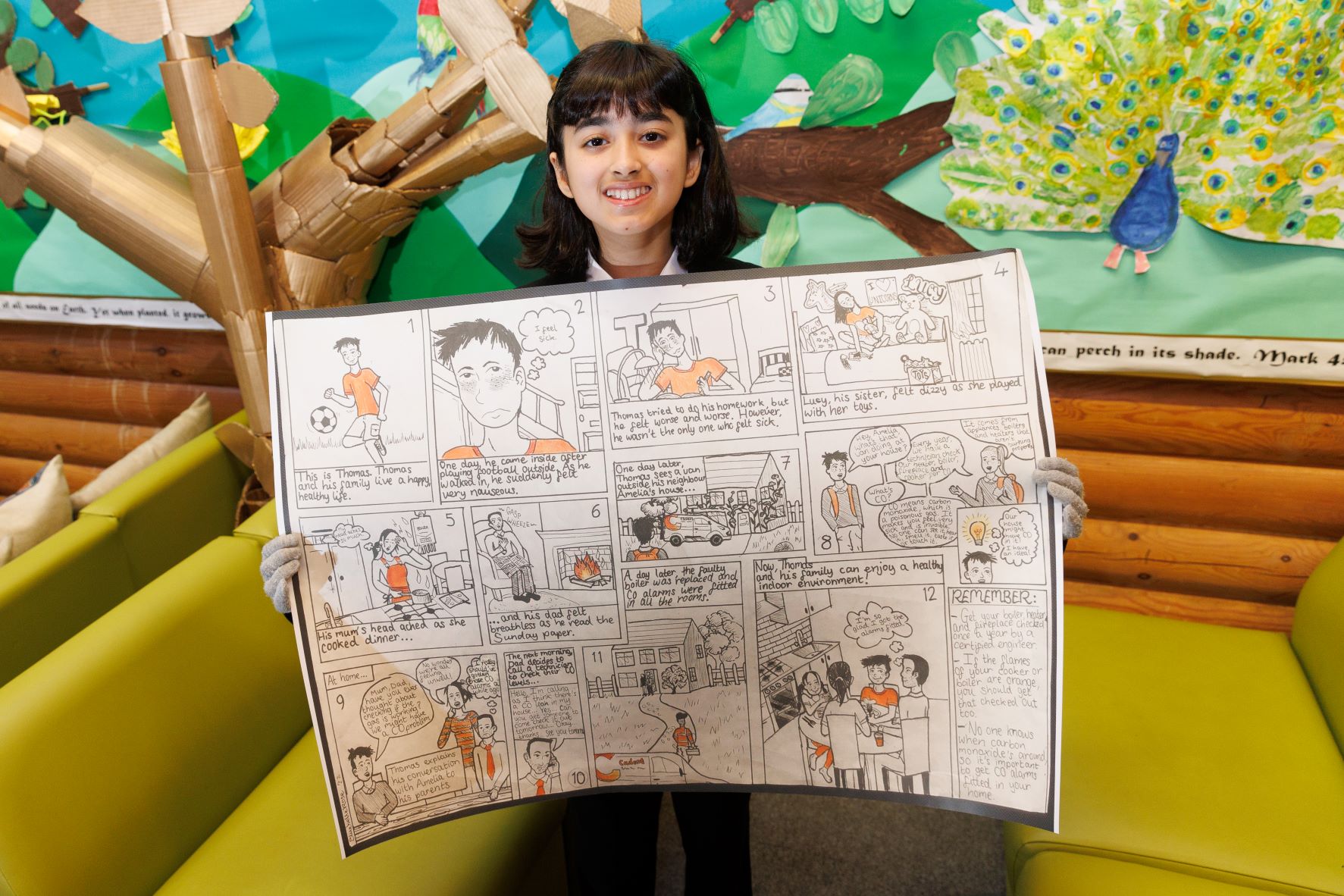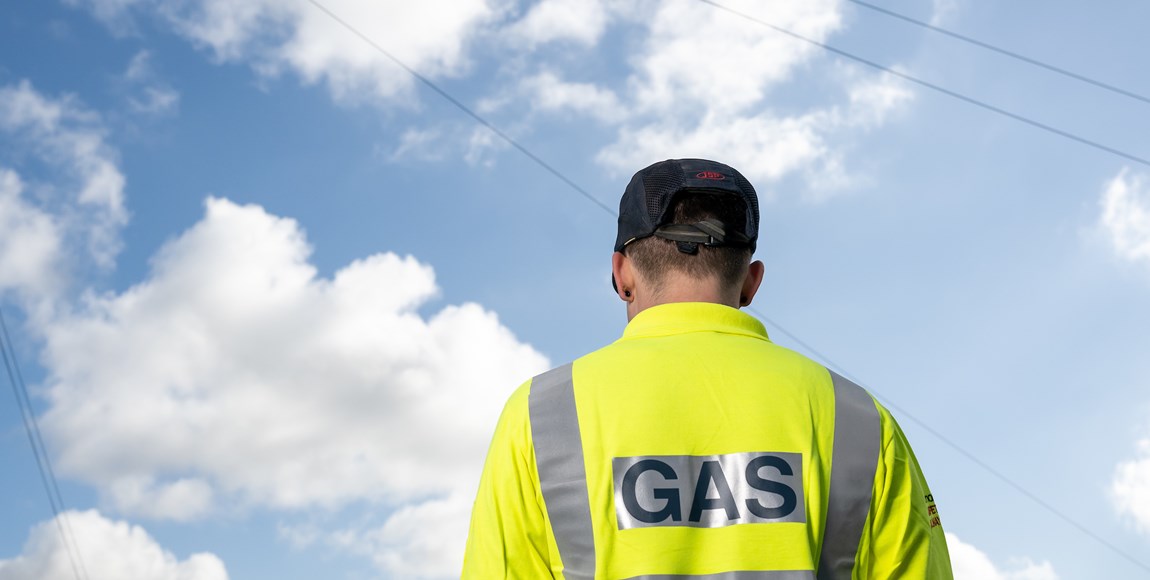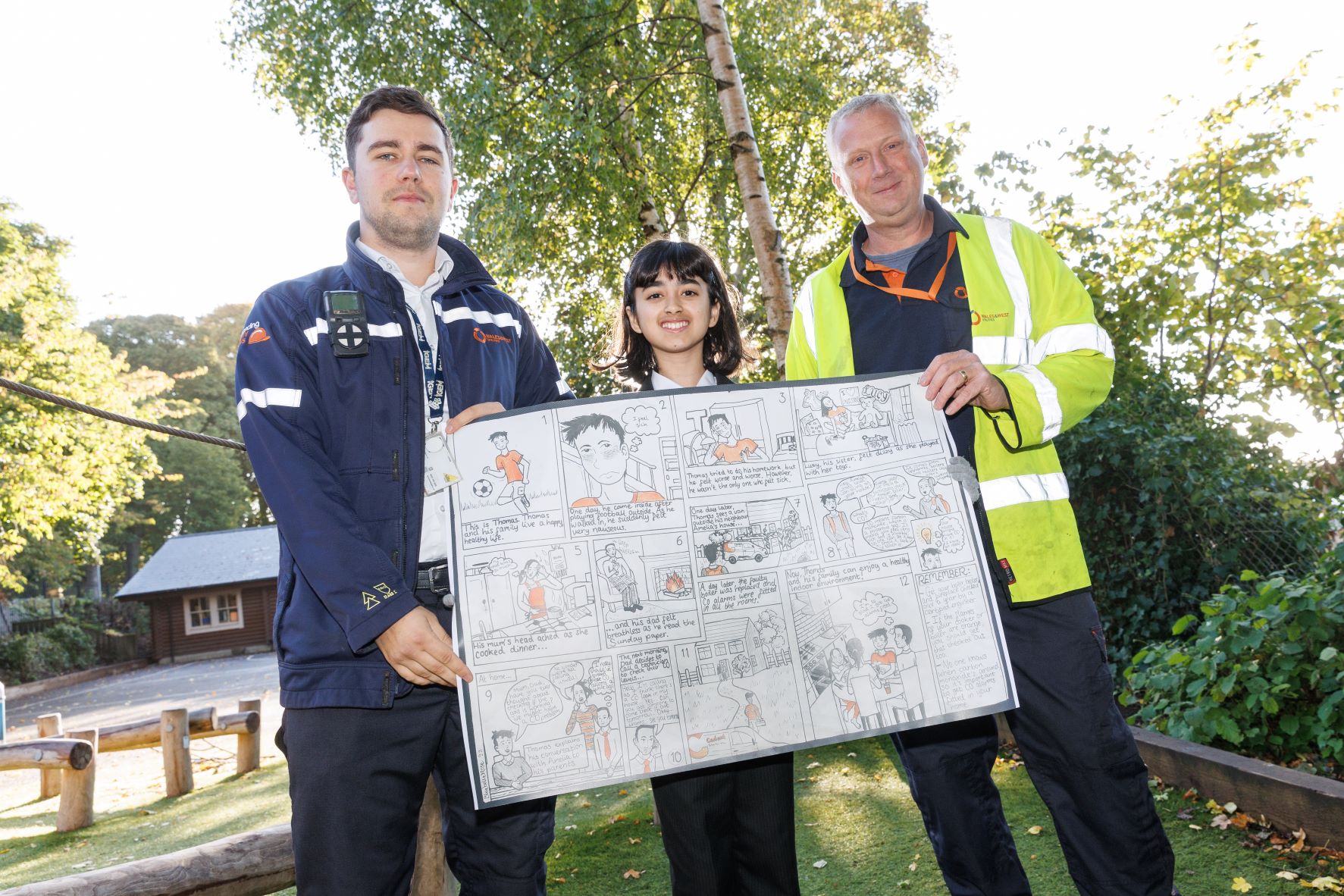Bath youngster, Bluebelle Paul, has won a national gas safety competition after channelling her creative talent to produce an informative cartoon warning of the dangers of carbon monoxide poisoning and the signs to look out for.
Bluebelle, age 11, who now attends Ralph Allen School, was at Combe Down Church of England Primary when she put pen to paper to come up with her design and enter the ‘Get Creative, Be Safe’ competition. She has scooped both the regional element of the competition and the top prize, picking up £450 for herself and £900 for Combe Down Church of England Primary, after judges hailed her cartoon as ‘fantastic’.
The ‘Get Creative, Be Safe’ competition is run nationally by industry body, Energy Networks Association, and is supported locally by gas emergency and pipeline service Wales & West Utilities. Each year it invites children aged 5-11 to produce something creative to warn of the dangers of carbon monoxide (CO) poisoning.
On hearing she’d won the competition, Bluebelle said:
Carbon monoxide poisoning is so dangerous but sometimes people my age don’t know what signs to look out for. I wanted to come up with something that my friends would find interesting and decided to develop a cartoon.
I really enjoyed coming up with the story and hope that it’ll help other people to recognise the symptoms of carbon monoxide poisoning. I can’t believe I’ve won – it’s amazing!

Bluebelle Paul with her winning entry
Head teacher at Combe Down Church of England Primary School, Mrs Gascoigne, is delighted and said:
Bluebelle took an innovative approach to the competition and is a worthy winner – we are all very proud of her!
Thanks to Bluebelle our school has also benefitted, and we’d like to thank her. The prize money will be gratefully received and we are delighted to have a national competition winner in our midst!
Clive Book, Head of Operations at Wales & West Utilities, said:
Bluebelle’s entry was fantastic and captured the attention of all judges.
The competition was a huge success this year and we hope that everyone taking part has been able to help spread the vital gas safety messages to their friends and loved ones.
Carbon monoxide (CO), known as the ‘silent killer’ because you can’t see it, smell it or taste it, kills 50 people a year in England and Wales and hospitalises many more. In the UK, there are more than 4,000 visits to Accident and & Emergency for treatment of carbon monoxide poisoning – which can often lead to lasting neurological damage. Even low levels of exposure over an extended period can cause serious health issues, including brain injuries.Symptoms of carbon monoxide poisoning include headaches, tiredness, nausea, dizziness, drowsiness, shortness of breath and, in extreme cases, loss of consciousness. Symptoms of carbon monoxide poisoning can be similar to those of food poisoning and the flu. However, unlike the flu, carbon monoxide poisoning does not cause a high temperature (fever).To stay safe, people are urged to:
- Make sure that gas appliances are serviced annually: that includes gas boilers, gas cookers and gas water heaters.
- Know the signs of carbon monoxide: Look out for your gas appliances burning a floppy yellow or orange, not crisp and blue; pilot lights on boilers frequently blowing out; extra condensation inside your window; soot or yellow stains around appliances.
- Know the symptoms of carbon monoxide poisoning: similar to the flu or food poisoning without a high temperature.
- Get an audible carbon monoxide alarm in every room with a gas appliance and test it regularly.
- If your alarm sounds, or you suspect carbon monoxide, take action: move outside into fresh air, leaving doors and windows open as you go. Then call the National Gas Emergency Service on 0800 111 999. In a medical emergency, don't delay, call 999 immediately.
Wales & West Utilities, the gas emergency and pipeline service, brings energy to 7.5m people across the south west of England and Wales. If you smell gas, or suspect the presence of carbon monoxide, call us on 0800 111 999 straight away, and our engineers will be there to help any time of day or night. Before visiting, we'll ask you to let us know if you or anyone in your household, is experiencing Coronavirus symptoms or self-isolating. We'll still come and help you: but our teams will take some additional precautions to keep us all safe.




